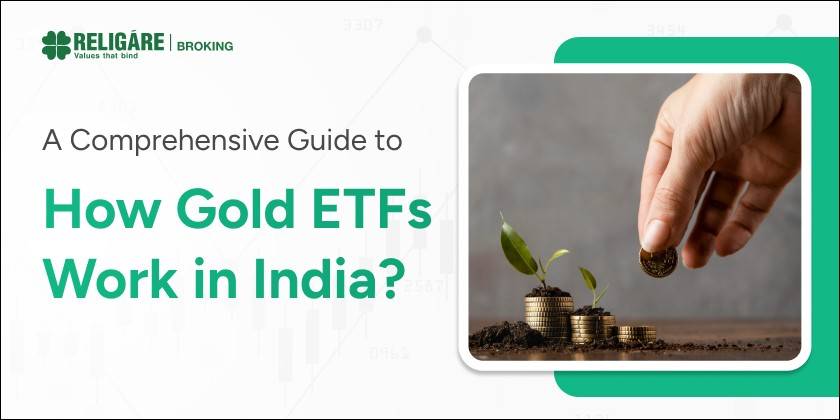In the intricate financial world, understanding the difference between FDI and FPI stands paramount. These terms illuminate the mechanisms of global economic engagements. By delving into FDI and FPI, this guide will uncover the depth of international investments and the strategic dynamics between nations and businesses.
Topics Covered :
- What is Foreign Direct Investment (FDI)?
- What is Foreign Portfolio Investment (FPI)?
- Difference Between FDI and FPI
- Conclusion
What is Foreign Direct Investment (FDI)?
Foreign Direct Investment, or FDI for short, is an investment strategy where someone from one nation pours money into business ventures of another nation. It could be through launching a new enterprise, acquiring a segment of an established business, or even a business merger in a foreign country. It’s not just about having shares; FDI is about playing an active role in the management and direction of that business. This signifies a long-term alignment with the host nation’s economy. It’s not just monetary investments; FDI often carries advanced technologies, innovative practices, and managerial expertise.
To participate in the Indian stock market, you’ll need a Demat account. Consider opening a demat account online free to start your investment journey and potentially benefit from the growth of various companies.
What is Foreign Portfolio Investment (FPI)?
Foreign Portfolio Investment, known as FPI, is a more hands-off approach. Investors channel their money into another nation without gaining substantial control over any businesses. Rather than buying business stakes, as with FDI, FPI focuses on purchasing financial instruments like stocks and bonds. The hallmark of FPI is its short-term nature. Assets like stocks or bonds can be quickly liquidated, unlike business assets in FDI. FPI offers investors a flexible approach to capitalise on foreign market trends.
Begin your investing journey today. Your Demat account is the first step.
Difference Between FDI and FPI
While FDI and FPI involve the allocation of capital across borders, they differ significantly in terms of their objectives, nature, and impact on host and source countries. Here are the key differences between FDI and FPI.
-
Purpose and Motivation
FDI: The primary motivation behind FDI is often to establish a long-term presence and gain strategic advantages in the host country. Investors in FDI seek to tap into new markets, access resources, technology, and expertise, and establish a physical presence in the host country. FDI is driven by considerations of market expansion, cost savings, and achieving economies of scale.
FPI: FPI investors are primarily motivated by financial returns. They seek to diversify their investment portfolios, capitalise on short- to medium-term market movements, and benefit from interest payments or dividends. FPI is often driven by factors such as interest rate differentials, exchange rate expectations, and market sentiment.
Recommended Read: Key Factors that Affect Stock Market
-
Ownership and Control
FDI:FDI investors acquire a significant ownership stake in the target company, which typically comes with control over management decisions and operations. This level of control allows them to influence the company’s strategic direction and decision-making processes.
FPI: FPI investors do not acquire significant ownership or control over the companies they invest in. They are passive investors who rely on market forces to determine the performance of their investments. They may have voting rights but usually do not use them to influence management decisions.
-
Investment Horizon
FDI: FDI investments are generally long-term in nature, with investors committing capital for many years or even decades. This long-term commitment reflects the investor’s intention to actively engage in the host country’s business environment and contribute to its economic development.
FPI:FPI investments are typically short- to medium-term in nature. Investors often have the flexibility to buy and sell financial assets relatively quickly, depending on market conditions and their investment objectives. FPI is more susceptible to rapid capital flows in and out of a country.
Recommended Read: What is Trade Settlement in Stock Market
-
Impact on Host Country
FDI:FDI can have a substantial impact on the host country’s economy. It can create jobs, transfer technology and knowledge, stimulate economic growth, and improve infrastructure. FDI is seen as a source of long-term stability and development.
FPI:FPI can be more volatile and may not have the same positive impact on the host country’s economy as FDI. It can lead to fluctuations in asset prices and exchange rates, making the host country more vulnerable to external shocks.
-
Vulnerability to External Shocks
FDI: FDI is generally less susceptible to external shocks and financial crises because of its long-term nature and commitment to the host country. Investors in FDI are more likely to weather economic downturns and continue to support their operations.
FPI: FPI is more sensitive to external factors and market sentiment. In times of crisis, FPI can be subject to rapid withdrawals, leading to financial instability in the host country.
Recommended Read: What is IOC?
-
Regulation and Policy
FDI: Host countries often have specific regulations and policies governing FDI, which may include restrictions on foreign ownership in certain sectors, requirements for technology transfer, and safeguards to protect national interests.
FPI:FPI is generally subject to less stringent regulations, although countries may still have rules in place to monitor and control capital flows to maintain stability in their financial markets.
Here’s the comparison in tabular form –
| Feature | FDI | FPI |
| Nature of Investment | Direct investment in businesses or physical things like factories. | Putting money in financial assets like shares or bonds. |
| Control over Business | You get a big say or even control in the foreign company. | You don’t get to control or dictate what the company does. |
| Duration of Investment | Stays for the long haul. | Might just be for a short while. |
| Investment Objective | Grow the business, reach new customers, or get new materials. | Trying to make quick money from price volatility. |
| Economic Impact | Helps grow the economy by building things, sharing knowledge, and creating jobs. | Helps by providing money but can change rapidly if prices move. |
| Liquidity | Hard to turn back into cash because it’s in physical things or business operations. | Easier to turn back into cash due to its nature. |
| Regulatory Oversight | More rules because they affect the country’s economy for a long time. | Rules about buying and selling but easier to start and stop. |
| Risk Profile | Steady, but depends on the country’s safety and growth. | Can change very quickly based on worldwide money market movements. |
| Returns on Investment | Money comes from the business’s profits and can take time. | Money comes from price increases, interest, or company payouts. |
| Investor’s Role | Hands-on in managing and running things. | Just putting in money, without getting involved in operations. |
Conclusion
While both FDI and FPI play pivotal roles in shaping the global economic landscape, they have distinct features, objectives, and impacts. Understanding the difference between FDI and FPI will help investors, policymakers, and stakeholders make informed decisions in the intricate web of international finance.
Also Read: What is Demat Account?

















